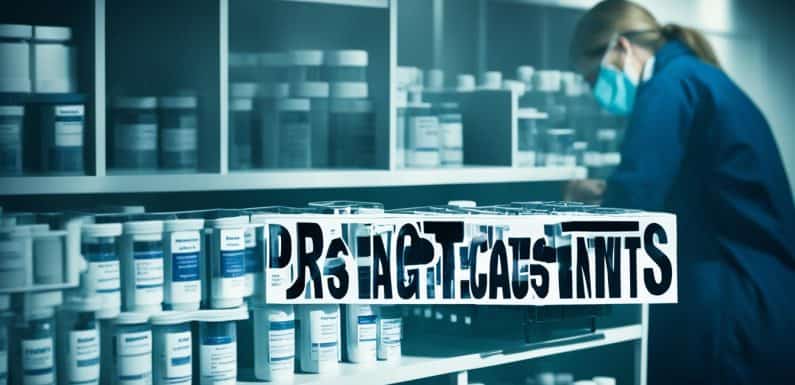
When a nurse steals drugs from a medication cart, they are committing a serious offense that falls under the realm of criminal law. This illegal action can result in a multitude of ramifications, often resulting in criminal charges that tarnish both their professional and personal standing. Nurses, touted for their roles in healthcare and entrusted with patient wellbeing, must recognize the severe legal boundaries they breach when diverting medications unlawfully. It is imperative for healthcare professionals to acquaint themselves with the laws governing drug theft to maintain ethical standards and safeguard patient safety within medical facilities.
Key Takeaways
- Drug theft by nurses is considered a criminal offense and subject to stringent legal consequences.
- Understanding criminal law is essential for nurses to avoid legal repercussions and maintain ethical integrity.
- The consequences of drug diversion extend beyond legal issues, impacting employment and licensure status.
- State licensing boards have the power to discipline nurses involved in drug theft, potentially revoking licensure.
- The National Practitioner Data Bank is instrumental in recording and communicating healthcare professionals’ misconduct.
Understanding Criminal Law in the Healthcare Setting
The intersection of criminal law and the healthcare setting presents unique challenges and responsibilities for nursing professionals across the United States. Acknowledging and addressing examples of criminal offenses such as drug diversion is critical for maintaining standards of practice and ensuring patient safety within healthcare institutions. This section delves into the nature of these offenses, their consequences for healthcare professionals, and the pivotal role of regulatory bodies such as state licensing boards and the National Practitioner Data Bank (NPDB).
Examples of Criminal Offenses in Nursing
Nurses hold positions of trust and are bound by a code of ethics that requires them to act in the best interests of their patients. However, when that trust is violated through criminally offensive actions such as theft, fraud, or abuse, it not only harms patients but also compromises the integrity of the healthcare profession. Drug diversion, in particular, is a salient issue where prescription medications are misappropriated for non-medical use, leading to significant legal scrutiny and professional ramifications.
Consequences of Drug Diversion for Healthcare Professionals
When healthcare professionals engage in drug diversion, the consequences are far-reaching and can include criminal prosecution, with potential for fines and imprisonment. Professionally, individuals may face loss of licensure, which effectively halts their ability to practice within the healthcare field. Administrative actions may include termination of employment, while civil actions could lead to lawsuits. These outcomes underscore the serious nature of drug diversion and the high stakes involved for healthcare providers.
The Role of State Licensing Boards and the National Practitioner Data Bank
To uphold the ethical standards and safeguard public health, state licensing boards monitor and regulate professional conduct. They possess the authority to review cases and administer disciplinary measures against licensure, up to revocation, to protect patients and maintain the integrity of the profession. Complementing this oversight, the National Practitioner Data Bank (NPDB) serves as a repository of information related to medical malpractice, disciplinary actions, and other relevant data on healthcare practitioners. These measures ensure that healthcare organizations have access to critical information, enabling them to make informed decisions about hiring and credentialing of healthcare professionals.
Legal and Ethical Implications of Drug Theft for Nurses
When nurses commit drug theft, they are transgressing beyond just hospital rules; they are stepping into territory fraught with legal implications. In the pursuit of maintaining law and order, the legal system is poised to levy severe sanctions on those who deviate from the strict protocols surrounding controlled substances. Nurses could find themselves grappling with criminal charges that not only threaten their personal freedom but also the security of their professional license—a lifeline of their career.
Beyond the courtroom, the ramifications echo through the halls of ethics, presenting profound ethical implications. The bond of trust between patients and nurses is sacred, and any act of drug theft considerably weakens this trust. It is a violation of core nursing values such as integrity, trustworthiness, and unwavering advocacy for patient welfare. At the heart of nursing ethics lie the principles of nonmaleficence and beneficence, both of which are undermined when a nurse diverts medications meant for patient care for personal use or illicit distribution.
Ultimately, the issue of drug theft among nurses is not one that can be viewed through a singular lens of repercussions; it is a confluence of legal and ethical breaches that, combined, can devastate a nurse’s career, the operation of healthcare facilities, and the delicate fabric of trust that supports patient care. To preserve the sanctity of the nursing profession, it is incumbent upon nurses to exemplify exemplary behavior, adhering to the highest standards of ethical conduct and embracing accountability for their actions in order to fortify patient safety and public confidence in the healthcare system.
